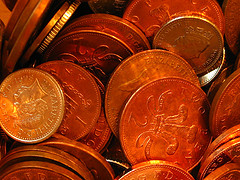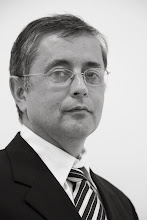Hilton and the business of milking brands
By JOHN KAY
Financial Times - 10/07/07 - Asia Ed1 - Page 11
With Paris dragged screaming back to jail, and the hotel group the latest victim of private equity, it has not been a good few weeks for the Hiltons. MBA students cannot believe the name was once synonymous with luxury. Before they turn 30 they are already jaded enough not to be impressed when corporate travel takes them to the Hilton.
Conrad Hilton was one of the first legendary hoteliers to conceive that high standards in hospitality could be rolled out internationally. That idea was subsumed in the development of global branding. And then it all became, as it remains, complicated.
Hotel-keeping is an industry where branding is more effective for lower quality products. The best hotels in the world - the Cipriani, the Crillon, the Savoy - sell on their own names and reputation. If owned by chains, or part of marketing groups, they do not emphasise these connections. With restaurants or wine, a strong brand is not so much a guarantee of excellence as of its opposite - McDonald's and Gallo are names to conjure with for accountants and brand managers, but not gourmets or wine connoisseurs.
I can already foresee the e-mails from marketing people explaining that I am confused: that McDonald's food and Gallo wines are good products, while Crillon, el Bulli and Chateau Petrus are themselves powerful brands. But the confusion is theirs. McDonald's and Gallo are great brands but inferior products and Crillon and Petrus are great products and weak brands.
The prevalent confusion is to muddle a brand and a name. TGV, Denmark and Bill Clinton are not brands but are the names of good, and distinctive, products. We travel on them, visit them or vote for them because of what they are, not because of what they are called.
This distinction is not completely clear-cut. No one is likely to travel on a stopping train because it is labelled a TGV: the timetable not the label governs our choice. But perhaps Denmark has succeeded in brand extension: the bacon gains an image of wholesomeness from the label. Although it is hard to imagine that anyone has the little mermaid or Hans Christian Andersen in mind when they eat a Danish pastry.
Perhaps an exercise in rebranding took place when Hillary Rodham became Hillary Clinton, although the political advantage she gained was not access to the magic name but, many years later, access to the connections of a popular US president. Hillary's important rebranding was the transformation of the strident architect of unsuccessful healthcare reform into the smooth-talking senator for New York. She changed what she did, not how it appeared.
The name is a means of labelling what we know; the brand is a means of conveying information about what we do not know. The global hotel brand comes into its own on your first visit to Bogota, when you have no relevant experience and suspect general standards are low. The same is true when you need an accountant in Jakarta or a hire car in Corfu.
Conrad Hilton's target market was affluent Americans new to foreign travel. Brands appeal to the underconfident. The branded wine is invaluable to neophytes, bemused by French wine labelling. The global power of the fast food brand comes from knowing what you are going to get even if you do not much like it.
When pressure for brand extension of products and geography is continuous, and the service must be delivered by local partners, it is hard to maintain the brand as a means of quality control. The big accounting firms know this all too well.
And so Hilton ceased to try to maintain its initial values. The sale of part of the company's interest to TWA in 1967 accelerated the decline. Sub-brands were allowed to proliferate. There were successive changes of ownership. But if the market position on which a brand is initially based is unsustainable, it may not be wrong to resist the temptation to milk the reputation. Perhaps strategic drift was the right course. In the long run the public bases its judgment on what you do, not what you are called or how you present it - as Paris Hilton, bearer of two iconic names in travel, has finally discovered. The lesson applies to business too.
skip to main |
skip to sidebar

Blog que trata de Avaliação de Empresas
Avaliação de Empresas

